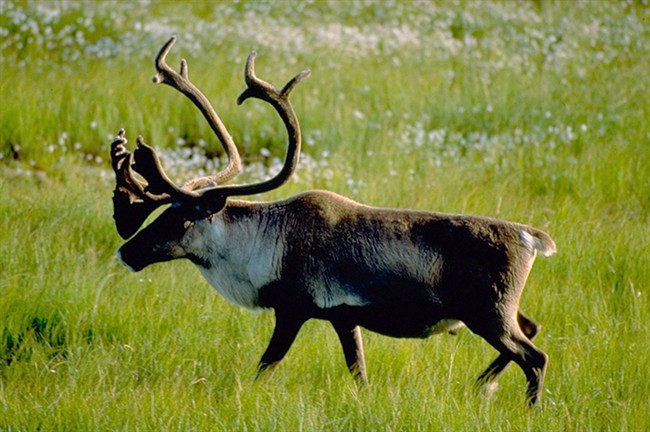It’s proving to be a mystery: Just how many caribou are actually roaming from British Columbia into Washington, Idaho and Montana?

Before trying to answer that question, though — if it can be answered at all — some background material.
Earlier this month, reports came out stating that attempts to maintain caribou in the American Pacific Northwest have been unsuccessful. So unsuccessful, in fact, that the two remaining members of the trans-boundary South Selkirk herd, which once numbered nearly 50 less than 10 years ago, will be removed from their habitat completely.
Trans-boundary herds have habitats on both sides of the Canada-U.S. border.
That caribou herd — the South Selkirk herd — had 46 members in 2009, according to Bart George, a wildlife biologist for the Kalispel Tribe in Washington state.
In an interview with the Spokesman Review newspaper last Saturday, George said wolves began filtering into the area, though logging roads and increased snowmobiling also played roles in declining numbers. However, he reiterated that predation by cougars and wolves was the top culprit.
The reports mentioned that removal of those two caribou, plus the four remaining members of the South Purcell herd, will mean that caribou will no longer be roaming in the Lower 48.
On Monday, though, Montana Fish, Wildlife and Parks threw a wrench into the no-more-caribou scenario in America. It said staff members have been receiving reports from residents of “documented sightings of woodland caribou near the U.S.-Canada border. The multiple sightings include the potential for a bull and a cow in separate locations.”

Get breaking National news
Those two caribou are believed to be from the South Purcell herd. While it’s just two caribou, it leads to questions like this: Is it possible that the South Selkirk herd has more than just two surviving members? And this: Is it possible, albeit unlikely, that part of the herd moved to a new location?
One year ago, reports estimated the South Selkirk herd to have 12 members. In April of this year, only three were counted, all females. During summer, one of those three was killed by a cougar, according to George.
Candace Batycki is with Yellowstone to Yukon, a non-profit conservation organization. Batycki is the B.C. and Yukon program director and is based in Nelson.
Batycki says the South Purcell herd dropped from 16 members to just four — three males and one female. Monday’s news, though, upped that to six.
“The South Purcell herd is not considered trans-boundary,” said Batycki. “However, these animals shock us all. Literally two days after B.C. let it be known that they were going to be taking those four animals out of the South Purcell herd and also take them to Revelstoke, miraculously, two more animals showed up in Montana.
“That’s the interesting thing about this story. We were all like, ‘I guess they’re going to take them out of their habitat, it’s a last-ditch effort and so on.’ And then, literally the next day, here they are wandering around Montana.
“British Columbia should be thinking very carefully about what they want to do over there, because that means there could be other animals from that herd that are out wandering around. And if they take out the four that they know about, what are they going to do when the other ones try to find each other?”
WATCH: Conservation Officers take to the air to enforce Revelstoke caribou closures

According to Montana Fish, Wildlife and Parks, caribou are native to that state but have almost completely disappeared from the contiguous U.S. over the last half century. Montana FWP attributed the population decline to habitat fragmentation, alteration, loss of old growth forest, and subsequent predation impacts. Montana FWP also said caribou have been known to roam from the Selkirk and Purcell mountain ranges in southern B.C into Montana, Idaho and Washington, but the occurrences have become increasingly rare.
“With caribou, and this sounds like a soundbyte but it’s really true, they’re showing us the complexity of ecosystems,” said Batycki. “As soon as we think we’ve got them figured out, they just do crazy things that nobody predicts.”







Comments
Want to discuss? Please read our Commenting Policy first.